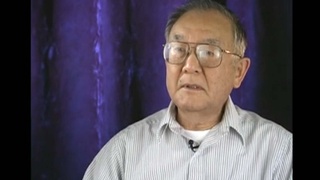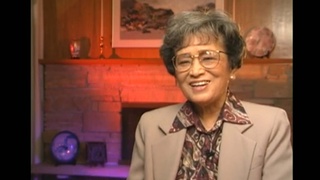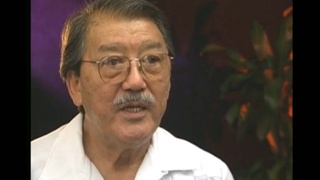Interviews
From Reparations to Redress
I was among those who opposed the redress movement, and I felt that it cheapened our sacrifice, to put out our hands and say, "Give us some money for what we went through." Cheapened the sacrifice, cheapened the, the ordeal that we went through. We wanted pay for what, in effect, we did to save the nation in the war. I changed my mind when they came up with the idea of the Congressional Commission, the relo-, what did they call that?
I*: The Commission on Wartime Relocation and Internment of Civilians?
Yeah. That would have the advantage of making a very intensive fact-finding, fact-found report to Congress, which would prove that a terrible wrong was done to us. And it, when we could come up with that kind of back, backing, it was far different from people who had suffered saying, "Give us some money for what we went through." And when that commission was approved and Dan Inouye and others got that bill through Congress, then I thought, "Yeah, this is, this is, this changes the picture altogether. Now, the main emphasis at the beginning was money. "Give us money." The original idea that Clifford Uyeda proposed at the JACL convention in Salt Lake City was $25 dollars, $25,000 dollars and it was called "reparations," which has an altogether different connotation from redress. And I was very uneasy with the approach that we were taking, but I changed my mind when it was made into a redress effort and included an apology from the, from Congress and the American people.
* "I" indicates an interviewer (Alice Ito).
Date: July 13, 2001
Location: Washington, US
Interviewer: Alice Ito, Daryl Maeda
Contributed by: Denshō: The Japanese American Legacy Project.






